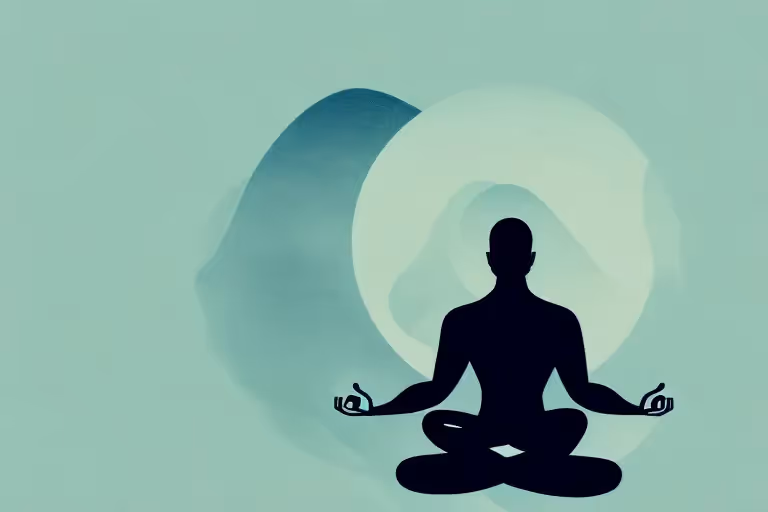Insomnia can be a frustrating and debilitating condition that affects millions of people worldwide. The relentless tossing and turning, the constant battle to quiet the mind, and the exhaustion that follows the next day can make life feel unbearable. Many individuals turn to medication to help them find relief, and one such medication that has gained popularity is Prozac. But is Prozac really effective in treating insomnia? Let's take a closer look and find out.
Understanding Prozac: A Brief Overview
Before diving into the efficacy of Prozac for insomnia, it's essential to have a basic understanding of what this medication is all about. Prozac, also known as fluoxetine, belongs to a class of antidepressants called selective serotonin reuptake inhibitors (SSRIs). It is primarily prescribed to alleviate symptoms of depression, anxiety disorders, and obsessive-compulsive disorder (OCD).
What is Prozac?
Prozac works by increasing the levels of serotonin, a neurotransmitter that plays a crucial role in regulating mood and sleep. By inhibiting the reabsorption of serotonin, Prozac helps to improve mood and reduce anxiety symptoms.
Find Peace and Sleep Restfully with the Aura Meditation and Sleep Stories App
Try it Free!
How Does Prozac Work?
While the exact mechanism of action of Prozac in treating insomnia is not fully understood, it is believed that by regulating serotonin levels, it may indirectly affect the sleep-wake cycle. Serotonin is known to influence various aspects of sleep, including sleep initiation, duration, and overall sleep quality.
Prozac has been extensively studied and has shown promising results in the treatment of insomnia. In a clinical trial conducted on individuals with depression and insomnia, Prozac was found to significantly improve sleep quality and reduce the time it takes to fall asleep. The participants reported feeling more refreshed and energized upon waking up, indicating a positive impact on their overall sleep patterns.
Furthermore, Prozac's effectiveness in treating insomnia may be attributed to its ability to address underlying psychological factors that contribute to sleep disturbances. By alleviating symptoms of depression and anxiety, Prozac can help individuals achieve a more relaxed state of mind, making it easier for them to fall asleep and stay asleep throughout the night.
It is important to note that while Prozac can be beneficial for some individuals with insomnia, it may not be suitable for everyone. As with any medication, there can be potential side effects and interactions with other medications. It is crucial to consult with a healthcare professional before starting Prozac or any other medication for insomnia.
In conclusion, Prozac, a selective serotonin reuptake inhibitor, is a medication commonly prescribed for depression, anxiety disorders, and OCD. Its ability to regulate serotonin levels in the brain may indirectly impact the sleep-wake cycle, leading to improved sleep quality and reduced insomnia symptoms. However, individual responses to Prozac can vary, and it is important to consult with a healthcare professional to determine the most appropriate treatment plan for insomnia.
The Link Between Prozac and Sleep
When considering the effectiveness of Prozac in treating insomnia, it's crucial to examine its impact on sleep patterns.
Prozac's Impact on Sleep Patterns
Research suggests that Prozac may have a mixed impact on sleep patterns. Some individuals report improvements in sleep quality and duration after starting Prozac, while others experience disruptions in their sleep patterns. Factors such as dosage, individual sensitivity, and underlying sleep disorders may influence these variations in sleep patterns.
One study conducted on a group of individuals with depression found that Prozac significantly improved their sleep quality. Participants reported falling asleep faster, experiencing fewer awakenings during the night, and feeling more refreshed upon waking up. These positive effects on sleep were attributed to Prozac's ability to regulate serotonin levels in the brain.
On the other hand, there have been reports of Prozac causing sleep disturbances in certain individuals. These disruptions can manifest as difficulty falling asleep, frequent awakenings, or vivid dreams. It is important to note that these side effects are relatively rare and may occur only in a small percentage of Prozac users.
The Role of Prozac in Regulating Sleep
Prozac's ability to regulate sleep is thought to be closely tied to its impact on serotonin levels. Serotonin is involved in the regulation of several neurochemical processes that affect sleep, such as the release of melatonin, a hormone that promotes sleep. By modulating serotonin levels, Prozac may indirectly influence the sleep-wake cycle.
When Prozac is taken, it inhibits the reuptake of serotonin in the brain, leading to increased levels of this neurotransmitter. This elevation in serotonin levels can have a calming effect on the brain, promoting relaxation and aiding in the initiation and maintenance of sleep. Additionally, serotonin is a precursor to melatonin, the hormone responsible for regulating the sleep-wake cycle. By increasing serotonin levels, Prozac may indirectly enhance the production and release of melatonin, further promoting healthy sleep patterns.
It is important to note that the relationship between Prozac and sleep is complex and can vary from person to person. Factors such as individual biology, underlying sleep disorders, and the specific dosage of Prozac prescribed can all influence the impact of the medication on sleep. Therefore, it is essential to consult with a healthcare professional to determine the most appropriate treatment plan for insomnia or any other sleep-related issues.
Prozac as a Treatment for Insomnia
Given Prozac's known impact on sleep patterns, it has been suggested as a potential treatment for insomnia. However, the scientific evidence supporting its efficacy in treating insomnia is limited.
The Science Behind Using Prozac for Insomnia
Studies exploring the use of Prozac as a treatment for insomnia have yielded mixed results. Some research suggests that Prozac may help improve certain aspects of sleep in individuals with comorbid depression or anxiety disorders. However, the effects on primary insomnia, without underlying psychiatric conditions, are less clear.
Potential Benefits of Prozac for Insomnia
Despite the limited evidence, some individuals report finding relief from insomnia symptoms when using Prozac. It may improve overall mood, reduce anxiety, and promote a sense of calm, leading to more restful sleep. However, it's important to note that each person's response to the medication may vary, and consulting with a healthcare professional is essential.
Risks and Side Effects of Using Prozac for Insomnia
As with any medication, using Prozac for insomnia comes with potential risks and side effects that need to be considered.
Common Side Effects of Prozac
Common side effects of Prozac include nausea, headache, insomnia, drowsiness, and sexual dysfunction. These side effects are typically temporary and may subside over time. However, if they persist or become severe, it is essential to consult with a healthcare professional.
Potential Risks of Long-Term Prozac Use
Long-term use of Prozac may be associated with certain risks, including the development of medication tolerance and dependence. Discontinuing Prozac abruptly can also lead to withdrawal symptoms. Therefore, it is crucial to work closely with a healthcare professional when considering the use of Prozac for insomnia.
Alternatives to Prozac for Insomnia Treatment
If Prozac is not the right fit for your insomnia treatment, there are other options worth exploring.
Other Medications for Insomnia
Various medications, such as benzodiazepines, non-benzodiazepine hypnotics, and melatonin agonists, are commonly used to treat insomnia. These medications work through different mechanisms and may be more suitable for specific individuals. It's important to discuss the options with a healthcare professional to determine the most appropriate treatment plan.
Non-Medication Approaches to Insomnia
In addition to medication, non-medication approaches such as cognitive-behavioral therapy for insomnia (CBT-I) can be highly effective in treating insomnia. CBT-I focuses on addressing the underlying thoughts, behaviors, and sleep habits that contribute to insomnia, providing long-term relief without relying on medication.
Overall, the effectiveness of using Prozac to treat insomnia remains inconclusive. While some individuals may find relief from their insomnia symptoms, others may experience minimal to no benefits. It is crucial to consult with a healthcare professional to explore all available options and determine the most appropriate treatment plan. Remember, everyone's journey with insomnia is unique, and finding the right approach may require patience and persistence.
On the other hand, for those interested in exploring complementary methods to support their overall well-being, the Aura Health app offers a range of mindfulness and sleep-related tools. This app can be a valuable resource for enhancing relaxation and promoting better sleep hygiene. By incorporating the Aura Health app into your daily routine, you can complement any treatment approach you choose for insomnia.
Aura is Your All In One App for Meditation, Mindfulness Wellbeing
Find peace every day with one app for your whole well-being. There is no one-size-fits-all solution to mental well-being. Aura is the first all-in-one wellness app that learns how to best help you. Discover an endless library of expert-created tracks for your well-being, all taught by the world’s best coaches, therapists, and storytellers. With Aura's personalized recommendations, you can find peace every morning, day and night.



.webp)






.avif)

%20(1).avif)


.avif)
.avif)
.webp)


.avif)


















































































































.avif)

















.svg)









